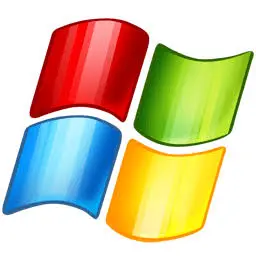I’m bored and want to practice my Rust skills. I am the creator of open-tv. If you have any idea for a linux desktop app, even if it seems quite complex, I will take it.
An app that tracks how much time you spend using each app. Locally obviously. I want this information so I can see how much I should donate to each project each quarter.
This. This is a hole in the market I think.
Windows used to have a similar hidden feature that my friend used all the time to tracking his work projects, but they removed it some time ago.
This is a good idea. It could even be later expanded to a sort of “digital wellbeing” type use case with time limits or reminders on certain apps, etc…
This is a very interesting concept, and I would also like it. Would this even be possible on Wayland though? I know it should be possible on X11, but I’m unsure if the Wayland isolation would entirely prevent a usage tracking program like this from seeing what the focused window is, or seeing the total time a process has spent in the background (depending on what type of usage is being tracked).
I’m attempting to implement this a Hyprland plugin, I could adapt it to work with all Wayland based compositiors/DE’s fairly easily. It just provides the stats using a CLI command, I’m not a UI dev xD
Make an app that is a little ASCII potted plant in your terminal and every time you type something it waters the plant and it grows
When nothing happens for too long, the plant withers and starts losing leaves. For each leaf that falls, a random file is deleted in /sbin.
Lol and maybe when the plant blooms you can have sudo back.
This reminds of a stupid filesystem pet idea I had a while ago. Running as a daemon, it walks through your filesystem and sometimes leaves traces (as files), maybe you’ll find it sleeping in your downloads folder every now and then. I thought it was a cute idea, but didnt actually think about implementing it, for obvious reasons, it could go so horribly wrong 😂
I lowkey want this, it’s like the system equivalent of the screen cat (btw does that exist but with Wayland support?)
Obsidian 1:1 open source alternative.
I would kill for this. Trying to get logseq, or any other markdown editor to play nice with an existing obsidian vault is a nightmare. And none of them are nearly as feature complete or expandable.
unrestrictive nature of Obsidian is simply top notch.
Is this sarcasm, or did you not understand their comment?
I was talking about the community extension integration, now about editors, I was easily able to switch between them. The one I was having the most difficulty with was Logseq."
LogSeq doesn’t do it for you?
nope, logseq is good for canvas and new knowledge base, but doesn’t fit for the my existing datalog requirements.
The mention of datalog confuses me. I know it as a programming language. Does it mean something else for you? And what do you mean by “canvas”? I know about painting on a canvas and similar usages as well as the verb “canvassing” for soliciting for votes.
Not the programming language, datalog here is referring to highly interlinked knowledge base,
canvas is logseq whiteboard version of Obsidian, like for mind map or creating data flow/logic diagrams.
The world needs the ability to sync freetube and newpipe. It’s the missing link for both Apps, to be usable from home, to out and about
I agree, but I think something is already in the works, I’ll check and probably make something practical to sync the two. It’s not really a new app that’s needed but a feature integrated into freetube/newpipe
Here’s a thread that sort of just… finishes nowhere.
I’ve been following it pretty closely, and haven’t seen any progress as yet. There are many github conversations, but nothing seems to have ever come of it.
I assume the challenge would be having the two different storage formats be able to be interchanged?
How about a Lemmy Client?
I would love a text based ActivityPub client focused on meaningful discussions: threaded view, ability to follow threads or branches, highlight posts based on keywords.
Fragmentation has entered the chat
I simply would like to have a non-browser based Lemmy Client. :/
Are there really none for Linux yet?
I stumbled upon two or so, but they were abandoned early on.
I’ve just tried building Thunder for desktop and it works fine so far without any tweaks nessesary. In fact I’m writing this comment using this very build.
If there’s interest I might be looking into turning this into a proper flatpak.
I’ve seen a few people in this sub asking for a desktop client, so it seems like something (some) people would be interested in. Maybe reach out to the Thunder devs and see if you can become an official flatpak maintainer (assuming you have flatpak experience and know what you’re getting into) if they don’t have time to maintain it themselves. You could also maybe get the “desktop” flag added to Thunder in this list if you were to do that, which would help people find it.
how is that fragmentation it’d be a front-end not a whole new software
Fragmentation of front-ends. If every dev works on a their own project, the community gets 0 quality ptoducts. If there are less projects but more devs working on them, the community gets multiple quality products. Now choose what is better
I’d like to see a simple, dependency-free, calculator app, written in Rust, using egui. All other GUI calculator apps I’ve seen so far are unnecessarily heavy, using bloated toolkits like GTK or Qt.
This would be handy for those run a GTK/Qt-free environment, and/or those who just want a tiny calculator app (optimised for the smallest binary size) without any external dependencies. Preferably even compiled using musl, to remove any glibc dependencies - resulting in a simple, small, portable binary that can run on any distro and doesn’t even need to be installed.
Eventually, I would like to see this idea expanded to other apps - such as a simple text editor, a simple image editor, and maybe even a simple and lightweight web browser using Servo.
Jesus Christ.
I use the calculator in Ubuntu tor very simple purposes. It was crashing on me every time I opened it.
I tracked down why.
It was trying to get a foreign currency exchange rate file - which I was horrified that you’d think about even having in a calculator.
The reason that was failing? Because I had a VPN enabled.
And it wouldn’t even fail gracefully. Nope it would poof, disappear.
The fix is to disable vpn, and disable foreign currency in the preferences.
I was so pissed off. And on the next upgrade the same thing happened, which I’d forgotten all about, so went through it AGAIN!
This was in fact what prompted my search - the Gnome calculator is so horribly bloated, and yeah, it should have no business making network connections, at least not by default - this should be an opt-in behaviour.
Not to tell you you don’t need a GUI calculator program, but the only times I needed one was on screen sharing when I had to show someone else what I’m doing.
For all other cases,
pythonin console is the best calculator ever. You don’t need to learn Python to use it, and it’s most likely already installed in most systems that you use.How are Gtk and Qt bloated?
A Linux implementation of Microsoft’s Powertoys. Having all those utility features in one app would be great.
Could be a decent idea
a 🔥blazingly fast🔥 voxel based open world RPG with soulslike and medroidvania elements
Or maybe a 100% science-based dragon MMO?
An app to manage important config and unit files (fstab, hosts, sysctl, systemd units, …), and present them as settings menu or editor with auto completion and tooltips. Kinda like how VSCode handles settings, where you can use the GUI or a context-aware text editor.
If you move to OpenSUSE/SUSE you have this via GUI GTK Yast apps. pretty much anything you want to adjust (kernel param, samba, add devices, alter services, etc) is available via GUI
Yeah, but how about Yast for all??? How about taking what Yast does, and replicating it for Debian-based or Fedora- or Arch-based distros? They all use Systemd and they are all pretty similar in everything, except the package manager, package availability, and release cycles.
Don’t think it would be that easy. What Yast does is creating a middle layer between the actual config files and the user. You can look at it, most (if not all) of it is stored in /etc/sysconfig. Yast generates the actual config files out of what is stored there. This can be a headache because editing the config files directly will sometimes lead to them just being overwritten bei Yast again.
This is probably the reason why other distros don’t even want to adopt Yast, it would have to fundamentally change how it interacts with the config files.
And the cool new thing is Cockpit anyway, even though it can do only a fraction of what Yast can last time I checked…I wish it was more widespread. I have a debian server, and a NixOS machine besides my OpenSUSE machine. I miss YAST2, it makes everything so easy
GUI app to create/edit/config Samba shares.
Good idea, after having just spent quite a while setting mine and troubleshooting them (first time samba user).
I haven’t used the tool below, but I’ve seen it be recommended. Might it be kind of what you’re looking for?
A music player for Jellyfin (that support SyncPlay)
doesn’t that exist already? I could swear I saw at least 2 on flathub
Only for movies, not for Audio only, and they mostly don’t support Sync Play (except for the official Client)
But if I missed one feel free to send me the links!
(I know that Finamp are working on a Desktop version though, but not out now and don’t support SyncPlay)
Jellyfin-mpv-shim supports SyncPlay
Implement a wireless file transfer protocol that works with Apple’s Airdrop and Android’s Quick Share.
In other words Airdrop for Linux that works with both iOS and Android.
- Create a software tool with UI that allows syncing of a phone with Linux to copy over photos, documents, music etc.
Must work with ios and android
In other words Airdrop for Linux that works with both iOS and Android.
May I introduce you to LocalSend
LocalSend looks great, but I don’t think it captures OP’s intention. It would require someone else to download the app if they wanted to receive a file, but OP is asking for something that uses the already existing Airdrop/Quick Share so that they could send a file to someone without them having to install anything. I’ve had similar wants, as when I’ve wanted to share something with someone in public that I don’t really know, I’ve just had to upload it to send.vis.ee, but that can be quite slow and inefficient. Something leveraging both Airdrop/Quick Share (that doesn’t require you to be connected to the same WiFi network like LocalSend) would be ideal, as those are features included by default on stock iOS and Android (no install required). For instance, there was something similar called WarpShare that allowed you to share something via Airdrop from an Android device to an Apple device (but only in that direction), but its development has stalled and it isn’t capable of using Quick Share for Android devices.
I’ll take a look at that. Thanks
1 is great.
for 2: syncthing is exactly this.
I must try that. Thanks
Afaik, there is no app to very easily generate GIFs.
- select images
- select duration
- select quality / size
- generate gif (avif?)
plus:
- optimized for smartphones
There is switcheroo which makes image conversion easily. It converts to gif as well but only 1 image to 1 gif, not 2 images to 1 gif.
It should be straight forward since image magick contains all neccessary commands for gif creation
What about a fully featured PDF tool (page deletion, blank page instertion, OCR, edition, conversion, cropping, reorientation, etc…). This is a very missing feature of the linux world, we always have to jump from one software to another. An alternative would be to build the plugins of Okular to allow to make these operations.
Have you checked out Stirling-PDF?
It looks great, but it is far from easy to install… Either you have to compile to use docker! Computer are not made for mathematicians only anymore ; )
There’s a docker image already that makes it easy to deploy and use, no compiling required.
Real time midi sequencer for the trs-80 model 100
You had me at TRS-80!


















